bởi Andrew Han | Diversity
A Worship Ministry Update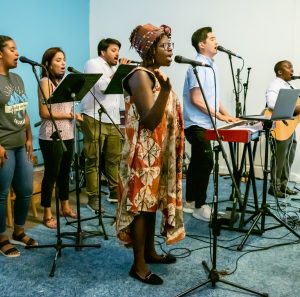
In the music ministry at OVF, one of our greatest blessings is also our most formative challenge: our diversity. As a multicultural team, we are constantly learning that worship isn’t about asserting our own cultural or personal preferences. Instead, we’re discovering the beauty of setting aside what we think is right in order to truly listen to and harmonize with one another. In this process of embracing and understanding our brothers and sisters, we are tangibly learning what it means to love like Jesus.
This journey comes with unique challenges. We regularly navigate different languages and unfamiliar musical genres, which stretches us beyond our comfort zones. Yet, we see this not as a burden, but as a God-given opportunity to expand our world and learn more about the global body of Christ. A constant and worthy challenge is balancing deep theological truth with musical accessibility. Our desire, rooted in our Reformed convictions, is to lead the congregation in songs that are rich in doctrine and faithful to Scripture, while also being heartfelt and singable for everyone. This requires continual discernment.
As we continue this work, we need your prayers for these specific things:
- For Unity in Diversity: Pray that through our differences, we would beautifully reflect the multifaceted glory of Jesus Christ, not simply our own diversity. Pray for an ever-deepening unity among us.
- For the Congregation: Pray that our music would faithfully serve the church, helping everyone to worship God more fully in spirit and in truth.
- For More Musicians: Please pray that the Lord would send more faithful and gifted musicians to join our team and serve the church.
Thank you for your partnership in the gospel! We are excited to see how God continues to build His church through worship at OVF.
bởi Noliani Clemente | Lãnh đạo của chúng tôi
TOM: We are grateful for the opportunity to share how faithful God has been to us. We are also thankful to be part of what God is doing here at One Voice. Some of you know that before coming to OVF in April 2023, we lived 10 years in North Africa. Before that we were in southern Spain for 15 years. We had the privilege of sharing the Good News of Jesus and serving the growing church in those places. We had to learn languages and adapt to new cultures, like many of you do. But we saw God provide people in every place — brothers and sisters in Christ — who welcomed us and helped us integrate into our new lives.
JANE: One of the hardest things was watching our children suffer, especially in our first year in Spain. Our son, John, said: “I don’t fit in here! I can’t speak Spanish. I’m too tall and too blond. They’re Catholic and we’re Evangelicals. I just want to be a normal American kid!” Our children often felt like outsiders and they missed our family back home. But God was faithful in providing good teachers and friends. Now our sons say about themselves: “parts made in the USA, assembled in Spain.”
All of our children are adults now, and the experience of living overseas greatly influenced them. Julia is a bi-lingual lawyer who lives in Arlington. She is married to a Bolivian man and they have 3 children. John works for a multinational energy company in Santiago, Chile and is married to a Chilean woman. They will be moving to this area next month. Our youngest, Tim, is a medical doctor with a heart to serve God in needy areas of the world. He just moved to DC this summer for further training at the National Children’s Hospital. In the past 25 years we have never lived in the same place.
So it will be a HUGE blessing to have all 3 of our children close by so that we can do life together in-person! This November, they will help us celebrate our 50th wedding anniversary!
A few years ago, while in North Africa, we started thinking about moving back to the US. We wanted to integrate into a new church community and get involved in ministry while we were still young enough. Then my mother had a stroke and needed fulltime care. So we moved back to my family’s home in McLean to help take care of her. One Voice was just the kind of church and ministry we had prayed for! Being part of the life of this community has made our adjustment to life back in the United States much easier than we had feared. We had wondered how we would fit into a homogeneous American church after starting and supporting multicultural churches overseas for 25 years? God again showed his faithfulness to us by bringing us here to One Voice Fellowship and made you our church family.
TOM: So that accounts for the past 25 years. But like we said, we are about to complete 50 years of marriage! Our journey has not been ordinary. It has taken some very unusual twists and turns. But Jesus, the author and perfecter of our faith, has been at work in us.
I grew up on a farm in the far northern part of Michigan, the 7th of 10 children. My father died when I was 11 and I remember the shock and crying out to God: “God, you’ve taken my daddy. Would you please be my Daddy?” Someone who knew my father showed me the love of God by taking me to a weekly Christian club for young boys, where I memorized many Bible verses. At Summer Bible camp my cabin counselor led me in saying the Sinner’s prayer to receive Jesus into my heart. I said the words, but I didn’t really understand what it meant to follow Jesus.
10 years later, I was in the Navy and very confused about life. One day a young evangelist on a beach in France challenged me to serve Jesus with my life. After I had proudly quoted many Bible verses to her, she said, “You know so much about Jesus. Why aren’t you living for him?!”
Her challenge rocked my world. I could quote the Bible verses, but did I believe them? I realized I wanted to believe, but I didn’t know how. I cried out to God for help. I asked Him to give me the faith to believe. He was my only hope. He answered my prayer and changed my life that night. I began reading the Bible every free moment I had. I got involved with a Christian ministry called the Navigators. I learned how to memorize Scripture, share the gospel, and lead Bible studies with the men on my ship. I believed God wanted to use me to preach the gospel, so I made plans to go to Bible college after the Navy.
JANE: I grew up right here in northern Virginia. My father was Catholic, but my mother didn’t believe in God. When I was 5, I developed juvenile arthritis. It is a painful condition that flared up every spring and put me in a wheelchair. One time, when I was in pain, I asked my father why God let me suffer. He wisely told me that it was so that I would be able to understand and help others who suffered. That gave me hope.
When I was 8, I understood that Jesus died for my sins, and I promised to serve him with my life. Singing became a way for me to express my faith and my ideas. I taught myself to play the guitar and joined a music group at church. I wanted to serve God with my talents and energy, but I didn’t really know the gospel. The gospel isn’t about what you and I can do for God, but what He has done for us!
When I was 17, God showed me that I needed to surrender all my plans and let Him direct my life. After months of spiritual struggle, I finally let go of the things I was holding on to for my identity and sense of worth. I asked him to fill me with his Holy Spirit. I began to read the Bible and God’s Word came alive to me!
As young adults, Tom and I were both looking for a way to serve God. We had been brought up with the “American Dream.” That Dream tells you that you can be anything you want to be. But that wasn’t our dream. We wanted our lives to be significant, to matter for God.
Now imagine the United States in the early 1970’s. There was a lot of social unrest over the Vietnam War and the Civil Rights Movement. Young people were looking for alternatives in drugs, sex, and religion. There was a revival among young people in America called the “Jesus Movement.”
In 1973, Tom and I both happened to be in Barcelona, Spain. Tom’s Navy ship stopped in the port, and I was studying at the University of Barcelona. We had not met one another yet. We were both recruited by a group from the Jesus Movement called “The Children of God.” We met each other only after we had joined the group. A year and a half later, we got married in Madrid. While in The Children of God, we lived in Spain, India, Pakistan, and Afghanistan.
TOM: While in this group we saw God provide for us in miraculous ways and people came to faith in Jesus through our evangelistic efforts. But there were also false teachings and harmful practices that got progressively worse. After 5 years, we left the group. We felt abused and broken both spiritually and emotionally.
We felt a strong feeling of failure after we realized how much The Children of God deceived us. We sometimes thought, “Jesus, can you still love me, even though I’ve been such a failure?” It took time for us to understand those experiences. But once again, God provided wonderful friends, counselors, and pastors to help us find our way.
We really wanted to go back overseas, but God was not in a hurry. He had so much to teach us. For the next 20 years, while we furthered our formal education, had our children and participated in healthy churches, God was teaching us about His grace. Isaiah 40 describes God as a shepherd who “gently leads those with young.” He gently led us and showed us his steadfast love through solid biblical teaching and in the ordinary rhythms of life and work.
We started seeing the Gospel in a new light. We saw that that the Gospel is not just the entryway into the Christian life. The Gospel is our daily food. We started seeing our sins of pride, judging others, complaining, speaking bad about others, and far worse things. We realized that even when we did good deeds, our motives were often mixed. We found the only remedy was preaching the Gospel to ourselves. We must remind ourselves of our sinful motives, words, and deeds; AND, we must also remember God’s never-failing grace and love for us. We learned what genuine, honest repentance looked like. In these ways, we experienced the joy and freedom that flows into our lives when we confess our sins and run to the arms of Jesus.
JANE: We still wanted to live cross-culturally and share the Good News with people who had never heard it before. But we weren’t trying to save the world anymore. We knew that only God could do that! But, we were so wrong before, so very deceived in the Children of God. Could we trust our ability to make wise decisions? We desperately needed God to direct our steps. Our church supported an organization that specialized in helping people see their brokenness and need for Christ. This organization valued people over programs and understood that God works through weak people just as much, if not more, than through strong people. We have happily served with that organization and grown in our faith for the past 27 years.
Jesus is our Shepherd and he leads us beside still waters; He restores our souls. He leads us in paths of righteousness for his name’s sake. He is faithful and good all the time!
And until we see him face to face, we will still need to repent of our fears and sins. Our hearts are sometimes tempted by fear or failure. We can be tempted to find our worth in what we do, rather than in what He has done for us.
In Revelation 3 Jesus said, 19 ”I warn and correct those I love. So be sincere, and turn away from your sins. 20 Here I am! I stand at the door and knock. If anyone hears my voice and opens the door, I will come in. I will eat with that person, and they will eat with me.”
It is a joyous thing to turn away from sin and welcome Jesus into our lives.
TOM: God reminds us in Ephesians 2:8-10: “For it is by grace you have been saved, through faith—and this is not from yourselves, it is the gift of God—not by works, so that no one can boast. For we are God’s handiwork, created in Christ Jesus to do good works, which God prepared in advance for us to do.”
What about you? How has God been working in your life? Do you need him to give you faith to believe? Do you need him to deliver you from the bondage of false teaching? Do you need to repent of finding your worth in what you do for God, instead of thanking him for Christ’s perfect righteousness given freely to those who trust in Him? Can you trust Him to work through you as you put your trust in Him?
When some religious people asked Jesus what was the work of God, Jesus answered: “The work of God is to believe in the one he sent.” That starts with believing he is who he said is: the Son of God who came to save sinners! And that believing continues to grow and deepen as we repent of our sins and trust him with every aspect of our lives. He is worthy!
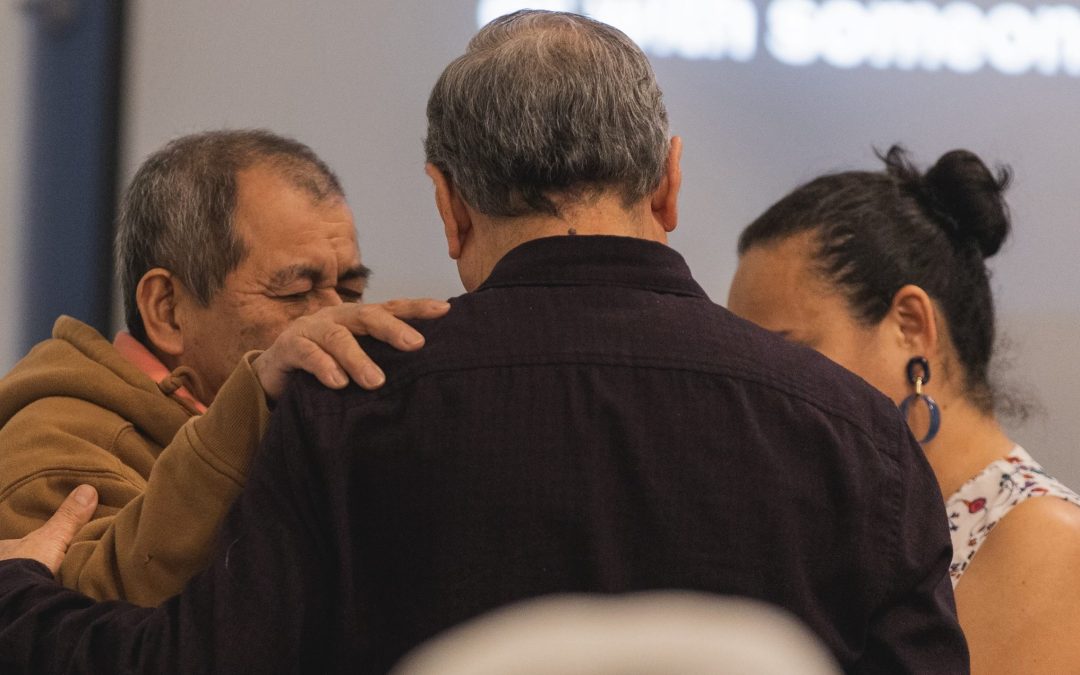
bởi Chris Sicks | Giới thiệu về một giọng nói
The Lord created us to be in real, deep relationships with one another. We all need to know who we can talk to about our sin and our struggles. We need to weep and rejoice with our brothers and sisters, and help one another when life gets hard.
These kinds of deep relationships can be formed in many ways at OVF: On Sunday nights in the classroom, during dinner, and in worship. Life Groups are one of the best places to build deep friendships with a small number of people. We also connect with one another in women’s and men’s prayer meetings, and during annual retreats and picnics.
However, even with all these good activities, people can feel unknown, overlooked, forgotten, or alone. Our Care Ministry is based on biblical principles, with the goal of actively praying for the congregation, seeking the help and power of the Good Shepherd as He works among us.
The vision of the OVF Care Ministry is “to strengthen and encourage each other in the faith, through prayer and personal Christian relationships.” We want everyone in the church to be known, and also to know where they can turn when they need help.
Every member of One Voice is assigned to a care group. We also include anyone who has been regularly attending our church for three months or longer. Each group of 25-30 people is assigned to a Care Team. Each Care Team is led by an elder with other godly men and women who are OVF members. These leaders cannot meet all your needs, and they are not professional counselors or therapists. Prayer is the focus of their ministry.
Goals for the OVF Care Ministry:
- Cover church members in prayer.
- Help members feel seen, known, and connected to the leadership and others at OVF.
- Monitor the congregation, to see who is disconnected, wandering from God, or hurting.
- Provide you with someone you can call for help or prayer.
- Direct you to other sources of help when necessary.
The Care Ministry does not replace Life Groups. If you are not in a Life Group now, please talk to us about that. Life Groups are the best place to give and receive help and encouragement.
Caring for the entire church is the work of the entire church. We all need a network of relationships as we face the challenges of life. Your Care Team leaders are one part of that network. We are here to pray for you, and who you can contact when you need help.
You can learn about the biblical basis for our Care Ministry by watching or reading this sermon.
If you have any questions, please ask one of the men or women on your Care Team! If you don’t know who your Care Team leaders are, contact our church administrator:
sooyeons.hanovfchurchonevoicefellowshiporgcom
bởi Naomi Sicks | Diversity
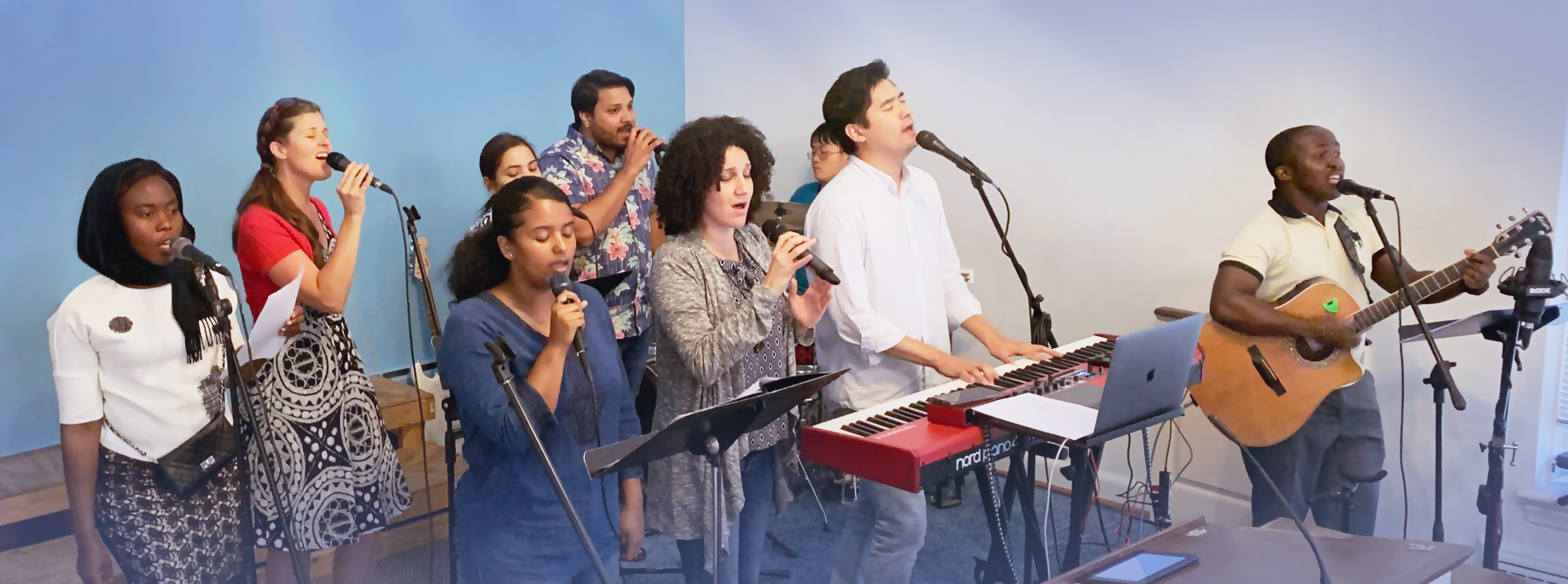
When Chris first shared his idea about singing the Doxology in different languages, I was skeptical. The thought of our international congregation singing simultaneously in all their languages sounded heavenly. But, why do it with the old-fashioned Doxology? The idea made my hippie-Christian skin crawl. When I was a child visiting my grandparents’ liturgical churches, I never understood all the standing up and sitting down. The responsive readings sounded like a sea of monotone voices that seemed insincere about the words they were reciting. So why sing the Doxology at a church like One Voice?
Well, you can imagine my surprise at the tears running down my cheeks as I began singing it for the first time at worship team practice. Andrew’s arrangement is moving and beautiful. We sang the Doxology once in English before repeating the stanza twice in our own languages: Spanish, French, Chinese, Korean, Urdu, Dari, Amharic, and English. Suddenly, I couldn’t even sing! My throat closed up as tears of joy ran down my face. Nothing prepared me for the gorgeous sound of many languages praising God together with one voice.
As we sang it in worship the following week, I looked around at the faces of my dear friends from all over the world. Their expressions changed from concentration as they sang English, to delight when they switched to the languages they grew up speaking (what we call their heart languages). The moment truly was a glimpse of heaven. People from many tribes and tongues singing together with one voice, with heart, worshipping our one Father in heaven.
I was humbled and honored to go back to my dear husband and say the words, “You were right!”
bởi Chris Sicks | Lãnh đạo của chúng tôi
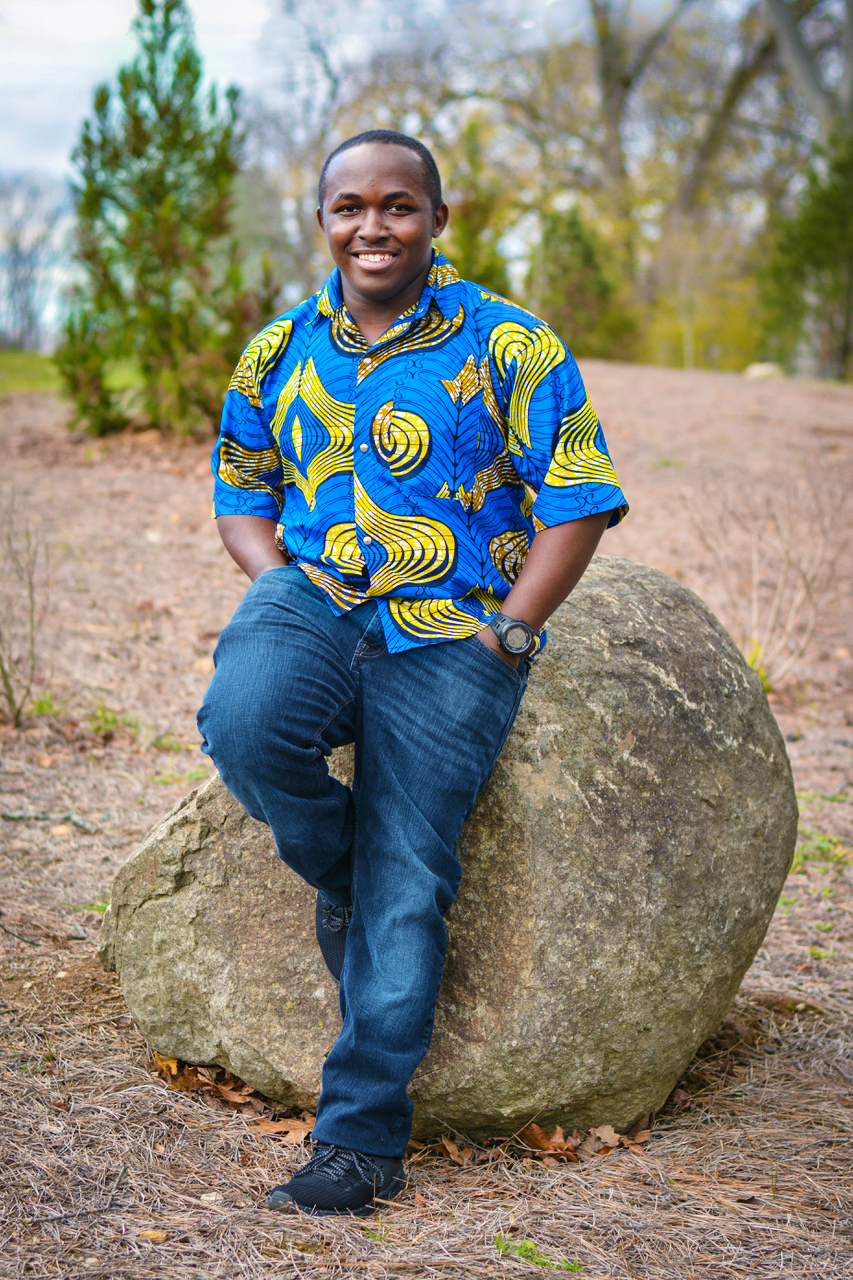
Clément Tendo
To me, One Voice Fellowship is “du-jamais-vu”—something I have not seen before. And yet I am extremely excited because of my interest in songs from different languages and genres and how they can be used in worship. I believe a Spirit-filled church is to reach out to all nations in their context with the uncompromised gospel of our Lord Jesus Christ. One Voice represents what the church of Christ is called to be as it prepares for the marriage supper of the Lamb, where people from every tribe and tongue will worship our great God together (Revelation 19:6-10; 5:9-10).
I grew up in Bible-believing home, something that I only ascribe to the grace of God. Yet, as I look at my life, I would not say that this blessing spared me from temptation and sin. As I continue in the faith, I realize how many my sins are—but also how great and mighty my Savior Jesus Christ is. I thank God for each moment of success, anxiety, worry, doubt, and uncertainty I have had. They remind me that God must remain the light through which I see all lights (Psalm 36:9). When I struggle, my sources of comfort and refuge are seeking God through prayer, recalling the prayers He has answered, singing and making gospel music, and studying God’s word. In deep darkness I have come to see that there is no other hope for me beside daily and patiently trusting in God and not leaning on my own understanding (Proverbs 3:5-6).
During my studies at African Bible University of Uganda, I looked at the state of the church in Africa and realized that most pastors are passionate and zealous for the gospel, but have little training in how to rightly handle the Word of truth (2 Timothy 2:15). I felt the need to share what I was studying with these ministers of the gospel so that knowledge and passion may work together for the advancement of the gospel. As one who is aware that God is still molding me day by day, my prayer is that God would make me an instrument in His hands and a daily beggar who shows other beggars where they can find the bread of life, through teaching, preaching, and singing as the Lord leads. My current studies at Westminster Theological Seminary are challenging but are shaping and sanctifying me in many ways. I am being equipped, through the power of the Holy Spirit, to work out my salvation with fear and trembling because of the work that God is daily doing in me (Philippians 2:12-13).
A local-church internship is required for my Master of Divinity degree, so I prayed that God would help me find a church to help me grow by applying what I am learning at Westminster. Thanks be to God for the loving and humble person of Pastor Chris, who called on me to come to be a part of One Voice Fellowship as a pastoral and worship intern, which I consider to be an answered prayer. I hope and pray that as we serve one another and come together in one voice to worship our God (Romans 15:5-7), we will continue to grow in the knowledge and grace of our Lord Jesus Christ (2 Peter 3:18) for the edification of one another, for our joy, and above all else, for the glory of God (Romans 11:36; 1 Corinthians 10:31).
bởi Chris Sicks | Lãnh đạo của chúng tôi
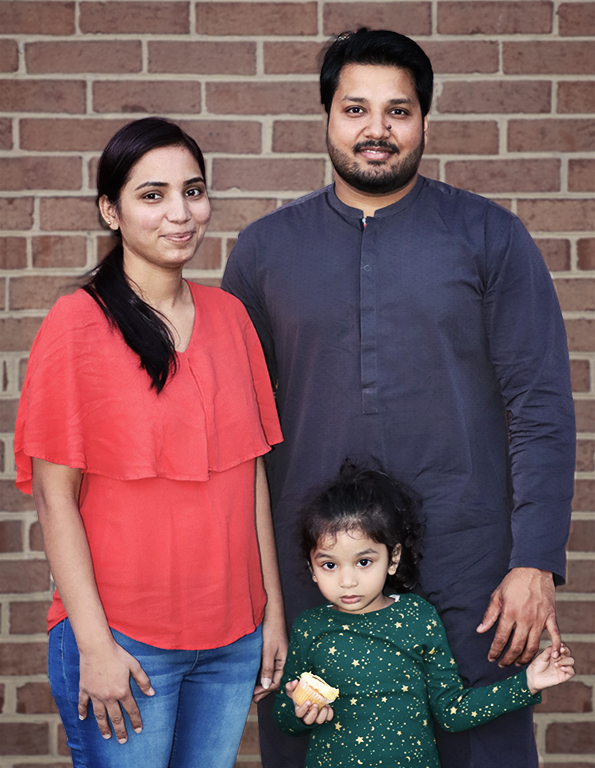
Kashif, vợ anh, Sana và con gái của họ
Cả hai chúng tôi đều đến từ Pakistan. Sinh ra trong các gia đình theo đạo Thiên chúa, chúng tôi rất tham gia vào mục vụ và ca đoàn thanh niên của nhà thờ. Ở Pakistan, chúng tôi thường tham gia vào mọi hoạt động của nhà thờ, bởi vì chúng tôi biết chúng tôi khó khăn thế nào khi sống thiếu Chúa. Khi chuyển đến Mỹ vào tháng 12 năm 2019, chúng tôi rất lo lắng về cuộc sống Cơ đốc của mình. Khi bạn chuyển đến một nơi mà bạn không quen biết ai thì điều đó thật đáng sợ. Nhưng chúng tôi đã cầu nguyện rất nhiều cho bản thân và đặc biệt là cho con gái của chúng tôi, Joy.
Ở Pakistan, chúng tôi có ý tưởng rằng mọi người ở Mỹ đang xa Chúa và nếu bạn đến nhà thờ, bạn sẽ chỉ thấy những người già, bởi vì thế hệ trẻ không đến nhà thờ.
Nhưng khi chúng tôi đến đây và gặp Mục sư Chris, chúng tôi cảm thấy rằng chúng tôi đã biết nhau nhiều năm. Ngài là người cha thiêng liêng của chúng ta, luôn hữu ích và yêu thương chúng ta như Đấng Christ yêu thương chúng ta. Vì vậy, khi mục sư Chris nói với chúng tôi về OVF, chúng tôi rất vui mừng. Chúng tôi nghĩ, “Chà! Sẽ thật tuyệt vời biết bao khi cầu nguyện bằng ngôn ngữ của chúng ta ở một nơi mà những người khác cũng sẽ lắng nghe chúng ta cầu nguyện và hát bằng ngôn ngữ của chúng ta ”.
Chúng tôi thực sự cảm thấy tự hào và biết ơn Chúa rằng chúng tôi là một phần của OVF. Không có sự phân biệt dựa trên nơi bạn đến. Mọi người lắng nghe lời chứng của chúng tôi, về cuộc sống khó khăn như thế nào để trở thành một Cơ đốc nhân ở Pakistan. Vì vậy, có cảm giác rằng tất cả chúng ta đều giống nhau ở đây. Như Kinh Thánh đã nói, chúng ta nên yêu nhau như Chúa yêu chúng ta!
bởi Chris Sicks | Giới thiệu về một giọng nói, Chưa được phân loại
Bất kỳ logo tốt nào cũng sẽ cho bạn biết điều gì đó về tổ chức mà nó đại diện. Dưới đây là ba ý tưởng đằng sau biểu trưng One Voice:
1) Toàn cầu - Hình dạng nhắc nhở chúng ta về trái đất, và rằng dân sự của Đức Chúa Trời được kêu gọi để chia sẻ Tin Mừng với tất cả các nhóm người, ở bất cứ nơi đâu.
“Các bạn sẽ là nhân chứng của tôi tại Giê-ru-sa-lem và khắp miền Giu-đê và Sa-ma-ri, và đến cùng trái đất. ” (Công vụ 1: 8)
“Đức Chúa Jêsus đến và nói với họ rằng: Mọi quyền hành trên trời và dưới đất đã được giao cho ta. Do đó, hãy đi và trở thành môn đồ của tất cả ethne, làm báp têm cho họ nhân danh Cha và Con và Thánh Thần, dạy họ tuân giữ mọi điều Ta đã truyền cho các con. Và này, tôi luôn ở bên bạn, cho đến cuối thời đại. ” (Ma-thi-ơ 28: 18-20)
2) Lấy Chúa Kitô làm trung tâm - Một lăng kính chia ánh sáng trắng thành đỏ, cam, vàng, lục, lam và tím. Giống như một lăng kính, ngôn ngữ và văn hóa thường phân chia Thân thể của Đấng Christ. Nhưng cây thánh giá có màu trắng trong biểu tượng của chúng tôi vì Thân thể của Chúa Kitô đã chứa mọi người từ mọi bộ lạc và ngôn ngữ. Chúng ta có thể cảm nghiệm được nhiều hơn sự sung mãn của Thân thể Đấng Christ khi chúng ta tham gia vào một cộng đồng đa dạng.
“Tôi có những con cừu khác không thuộc giống này. Tôi cũng phải mang theo chúng, và chúng sẽ lắng nghe tiếng nói của tôi. Vì vậy, sẽ có một bầy, một người chăn cừu ”. (Giăng 10:16)
3) Đa văn hóa - Nhiều nhà thờ cố gắng trở thành đa văn hóa, như họ nên làm. Đa văn hóa là một bước tiến xa hơn và là mục tiêu của chúng tôi tại One Voice. Hãy xem màu sắc thay đổi như thế nào khi chúng tương tác với nhau? Như trong hôn nhân, mục tiêu của chúng tôi là ở trong một cộng đồng gần gũi với nhau đến mức cả hai chúng tôi đều có thể thay đổi trải nghiệm vì điều tốt đẹp hơn.
“Khi chúng ta bắt đầu tương tác với ai đó có nền văn hóa khác với chúng ta, dù ở tận cùng trái đất, ở thung lũng bên cạnh, hay trên đường phố của chúng ta, và khi chúng ta cố gắng hiểu rõ về nhau, chúng ta đang tham gia vào“ tương tác intercultural ”. Đa văn hóa mô tả những gì xảy ra giữa các nền văn hóa. Học tập giữa các nền văn hóa xảy ra khi chúng ta học hỏi lẫn nhau khi cuộc sống của chúng ta giao nhau. " (Cơ đốc nhân và sự khác biệt văn hóa, Smith và Dykstra-Pruim, 15 tuổi)







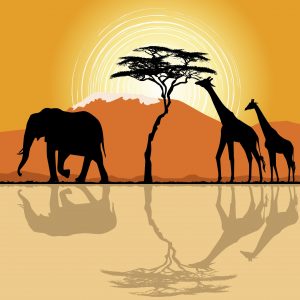 Too often, our churches treat elephants (newcomers who aren’t from the majority culture) like this. We are very glad they’ve come to visit. But as they try to get comfortable, to settle into the community, they learn they are expected to change. In the story, the elephant resists bearing the full burden of change. He thinks maybe the giraffe’s house should make some changes.
Too often, our churches treat elephants (newcomers who aren’t from the majority culture) like this. We are very glad they’ve come to visit. But as they try to get comfortable, to settle into the community, they learn they are expected to change. In the story, the elephant resists bearing the full burden of change. He thinks maybe the giraffe’s house should make some changes.